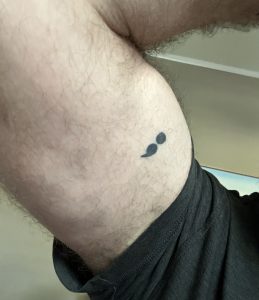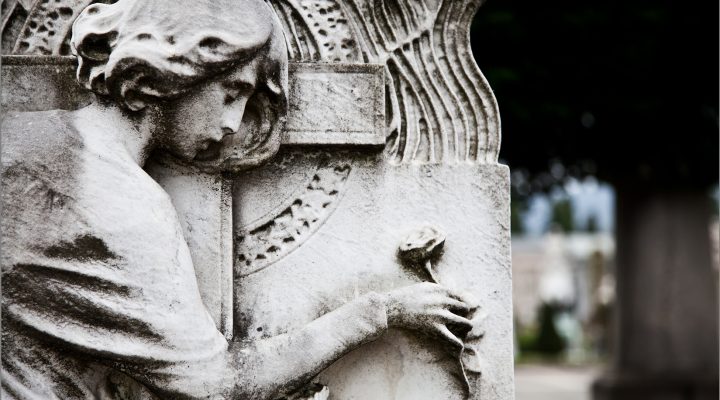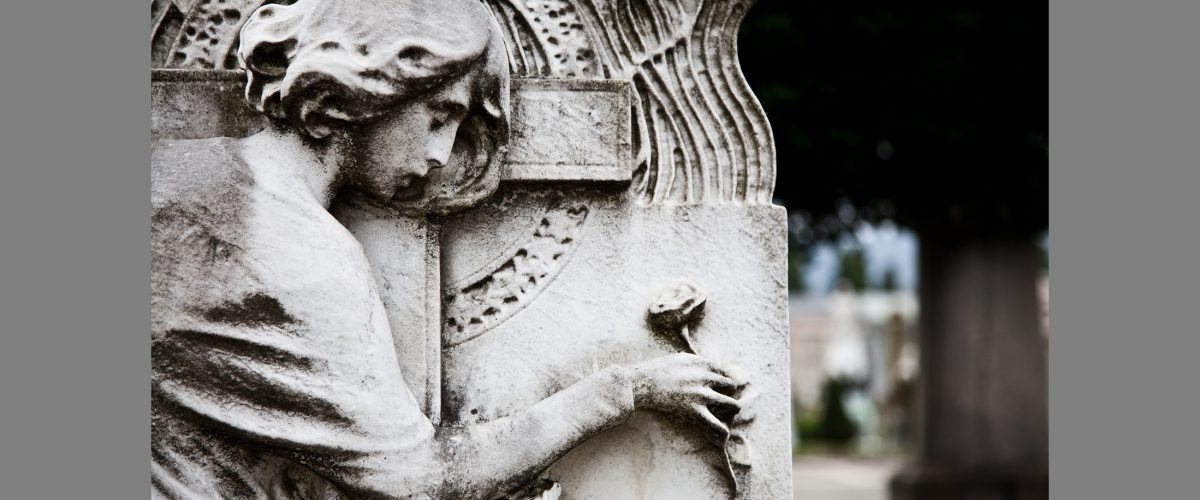Today, I did something I’ve never done before at a funeral. Something so ill-advised that pastoral care professors reading this likely will flinch on hearing it. Something that’s the wrong thing except when it is suddenly very necessary.
I told part of my own story to a crowd of people I never had met to help them hear what else I needed to say about their grief.
That’s not what I intended to do when I walked into the chapel for the noon service today. But when I looked out over the sea of about 100 pained faces filling the room, and as I listened to the stories of four eulogists, I knew I needed to change my plans.

Mark Wingfield
Daniel was 43 years old. No spouse or partner, but he was the beloved son, brother and uncle to adoring family members. He was a man’s man — big, loud, full of life, loved to hunt and fish and be outdoors. He brought joy to everyone around him.
But beneath that public persona, Daniel didn’t think his life mattered. The pain led him to take his own life.
That’s how I came to be standing in front of this crowd of strangers where men were weeping so hard they couldn’t see. I looked out over the crowd and realized there are only a few times among the hundreds of funerals I’ve officiated I’ve ever seen so much raw emotion.
“That’s how I came to be standing in front of this crowd of strangers where men were weeping so hard they couldn’t see.”
And here I was — a stranger — asked to bring words of hope and comfort. I fretted about this through three songs and four eulogists before it was my turn to stand and deliver a message. I had spoken briefly at the beginning, setting the stage for why we were gathered here and reminding everyone this is not the way life is supposed to be, that mothers shouldn’t have to bury their children, that a beautiful life should not be cut in half.
People nodded in agreement as I spoke those words.
The four eulogists all were superb — and brief — in what they said. They told the kinds of stories grieving people needed to hear. Stories about Daniel, not about themselves. Funny stories, poignant stories, memories.
The last of them told one story that captivated my attention. She grew up with Daniel and said he was her first true friend as a child. She was as much a girlie girl as he was a manly man even as a child, she said. So when one day Daniel wanted to show her a hatchet, she had no idea what a hatchet could do.
You can see where this is going, right? I listened and did a quick visual inventory; the speaker appeared to have all her limbs intact. Sure enough, there was a mishap that day, though, and the speaker nearly lost a finger in Daniel’s hatchet demonstration, she said, holding up one hand as evidence.
“Now I have a Daniel scar,” she said tearfully.
My mind was racing. I knew I needed to pick up that theme when I spoke next. That was too good to let go.
“You don’t know me, and I don’t know you,” I began. “But we share a common story.”
When I rose, I took off my suit jacket, laid it on the small pew behind me and approached the podium. “You don’t know me, and I don’t know you,” I began. “But we share a common story.”
“Depression is a disease that tells you lies. It tells you you are not worthy, your life doesn’t matter, that the world would be better off without you in it,” I said. “I know because, like Daniel, I’ve been there and still am there some days. And based on statistics, at least a few of you in this room today know exactly what I’m talking about. You have been there too. Maybe you’re there today.”
 By this point, I was unbuttoning my right shirt sleeve and rolling it up to my bicep to reveal the semicolon tattoo there. “This is my Daniel scar,” I continued. “This is a reminder that seven years ago I thought the world would be better off without me in it. The pain was too great.
By this point, I was unbuttoning my right shirt sleeve and rolling it up to my bicep to reveal the semicolon tattoo there. “This is my Daniel scar,” I continued. “This is a reminder that seven years ago I thought the world would be better off without me in it. The pain was too great.
“The thing about depression is it often afflicts people who you have no idea could be depressed. People like me, an extreme extrovert. People like Daniel, who was the joy of your lives.”
Heads were nodding all across the room. Tears were flowing. Tissues were being passed.
I briefly explained the meaning of the semicolon as an alternative view when you think life has placed a period at the end of your story. Change the period to a semicolon and realize your story is not over. There’s more to your story.
“There may be some of you here today who believe the world would be better off without you in it,” I said. “But I want you to see this room full of people who will tell you a different story. You are loved. Your life matters. You are needed.”
I also reassured everyone there they were not to blame for Daniel’s death. Whatever they thought they could have done, whenever they could have called, whatever they could have said, they had to let it go. Blaming yourself for someone else’s self-inflicted death is a burden you don’t need to carry.
Honestly, I’ve never cried so much delivering a funeral message as I did today. Somehow, with these people in this moment, this was personal. I needed to speak a word of gospel hope, and I needed these strangers to trust I was not some passthrough preacher who didn’t know what he was talking about.
I needed them to know I had some skin in the game.
“You’ve got to decide whether that scar is going to make you better or bitter.”
“Here’s the point,” I continued. “Everyone here today now has a Daniel scar. And you’ve got to decide whether that scar is going to make you better or bitter. You’ve got to decide whether you’ll be angry or you’ll be challenged to live your life in a more beautiful way.”
Then I was able to declare the message of hope of the gospel: “The Bible teaches us there is nothing that can separate us from the love of God, neither famine nor war nor principalities nor powers … or depression. Nothing we do can separate us from the love of God.”
And from there I was able to share the gospel hope of Christ’s resurrection from the dead, of his promise that where he has gone, there we also may be, that though we appear dead we will yet live, that Jesus is the resurrection and the life. I was able to speak the words of the Apostle Paul that this mortal body must give way to the immortal body. It may look like death has won the day, I said, but it has not. Jesus Christ has defeated death.
After the message, I took my place beside the open casket as friends and family passed by to pay their respects one last time. Never ever in 20 years of officiating funerals have I had so many people stop to whisper a word to me as they passed by. Several held up fingers, wrists, arms to show me their semicolon tattoos. “I have one too,” they whispered knowingly.
And one man gave the greatest compliment I’ve ever received at a funeral: “I don’t know you, but I’ll never forget you and what you said today.”
Maybe this is just one of those had-to-be there moments. Perhaps the emotion of this day can’t be transferred in writing. But this one message speaks to us all: We all have Daniel scars.
We all carry wounds and remembrances of near-misses and tragedies and pain and sorrow that shape who we are. And we have a choice about how to tell that story. We can hide our pain under a shirt and coat and pretend it isn’t there, or we can let those who are struggling know they are not alone.
Mark Wingfield serves as executive director and publisher of Baptist News Global. He is the author of Honestly: Telling the Truth About the Bible and Ourselves and Why Churches Need to Talk About Sexuality. His brand-new book is Troubling the Truth and Other Tales from the News.
Related articles:
A tattoo that says, ‘Your story is not over’ | Opinion by Mark Wingfield
New book explores pain of preaching after a suicide in the congregation | Opinion by Jason Coker
Remembering Robin Williams and wishing we could talk openly about suicide | Opinion by Kim Brewer


